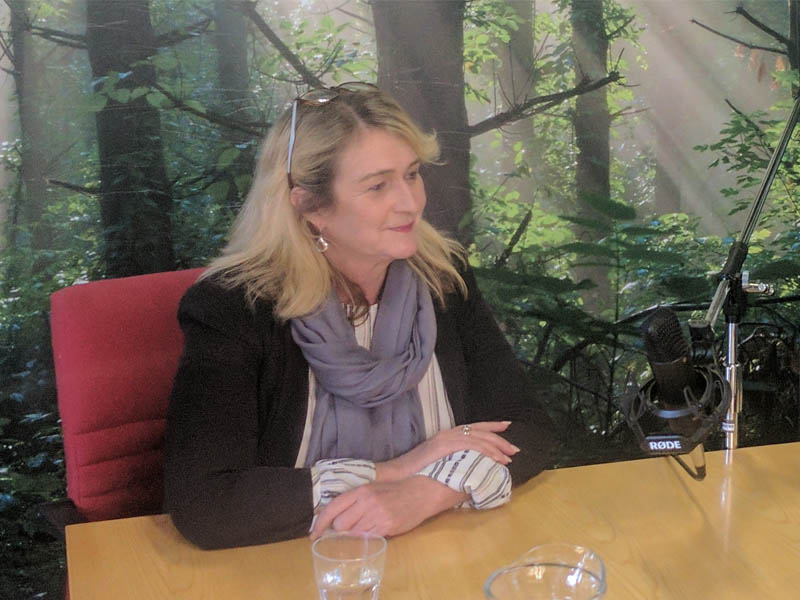As a kid growing up in rural NSW in the 1970’s, watching Irish Comedian Dave Allen on ABC TV was a family event. One sketch I remember vividly: Allen, partially dressed in caveman fur, stands exhausted and triumphant as he lifts a roughly chiselled stone above his head and exclaims victory: “I have invented…THE WHEEL!”. A half second later, a sexy-red race car zooms-by in front of him, on a freeway, leaving him dumbfounded in the dust.
That sketch has popped into my head a lot in the past year following the stoush pitting New Media – the Big Tech platform giants Google and Facebook – against traditional Australian media companies, the ACCC and the federal government.
Led by relentless lobbying from News Corporation, the government’s internationally controversial proposed Media Bargaining Code kicked the fight into high gear and even higher hyperbole. It was billed as a battle, not just about the ‘future of news’ in this country (and perhaps farther afield) – but also the future of our democracy.

That any democracy needs a healthy, independent, and diverse media and information ecosystem to thrive is inarguable.
That the Big Tech platforms have screwed with that system should have been obvious to anyone who was paying attention since about 2005: the scale and economics that drive digital distribution of content are exponentially more favourable than the economics of those who create it.
But the belief that the government’s Media Bargaining Code was ever the instrument to level the playing field between new and old media of any clout or size, and in turn become the catalyst to save democracy is a fantasy.
The content deals struck last week between Google and News Corp, Seven West Media, Nine and the Guardian – and the expected deal to be inked in coming days and weeks between Google and the ABC – puts the price of our democracy somewhere in the range of $100 to $300 million dollars.
This includes the smaller private commercial deals agreed between Google and several independent publishers including Private Media (publisher of Crikey) and Schwartz Media.
For Google, a corporation which has already paid out fines (for online advertising privacy breaches) in other markets to the tune of billions of dollars, it is a tiny cost of doing business and one they have long expected in one form or another. Striking these deals before the Code becomes law curbs the potential for similar law to be adopted in global markets.
Facebook, meanwhile, is refusing to pay-to-play and has packed up its ball, (its Australian news feed) and gone home.
But while the government and big old media are declaring victory, with some international media watchers and analysts cheering them on, there’s no joy for the many smaller independent publishers in Australia – also vital for a healthy information system – who have neither the might nor the resources to bargain effectively with Google.
So much for diversity.
I’m not at all suggesting that Australian regulators and policymakers do not have the right and responsibility to ask hard questions or design and enact laws that seek to preserve sovereignty or to foster a fair and competitive media and business environment.
Australian media and policy makers are not the only ones coming to terms with a present and a future they did not invent and can’t control.
But like Dave Allen’s “Caveman”, most of the world’s media companies and regulators have stood flat-footed for far too long, armed only with old mentalities and regulatory instruments.
Meanwhile, new bigger tech-driven shifts are accelerating. For independent writers and publishers there are new platforms such as Subtstack, Patreon, and Clubhouse where individuals can build direct revenue streams from audiences through subscription or recurring one-off payments – avoiding ads in the process. And consumers’ growing awareness of their data privacy will continue to dog the likes of Google and Facebook.
But there is little doubt that the biggest new, new thing to come into our 21st century technocracy is regulation.
Every wave of transformational tech throughout history gets regulated – railways, food, shipping and airlines, oil.
The overlords of the internet and data economy have long known they are next. This regulatory battle has many problems on many fronts in many geographies. The problems regulators and concerned citizens are trying fix include tech companies being bad to other companies, tech companies being bad to users, and bad people using tech.
The gamut of instruments only recently been proposed span tax, anti-trust, privacy, freedom of speech and censorship.
“Technology is neither good nor bad, nor is it neutral”. This straightforward though astute observation by American technology historian, Melvin Kranzberg is the first of his six ‘laws’ to guide how citizens and lawmakers should think about the power and pervasiveness of technology and its interactions with economic and cultural change.
“Technology is a very human activity and so is the history of technology,” he observed in his Sixth Law. “Behind every machine, I see a face – indeed many faces: the engineer, the worker, the businessman or woman, and sometimes the general and admiral. The function of technology is its use by and for human beings – and sometimes, alas, its abuse and misuse”.
Kranzberg penned his ‘laws’ three decades ago, just before the US-domiciled inventor entrepreneurs founded the likes of Google, Facebook and Twitter and rushed headlong into the future – with blind optimism and mercurial ambition – to create the 21st Century ‘attention economy’.
Kranzberg was informed by a career immersed in observing technological and societal impacts and the winners and losers that result with each great technological shift. He was analysing the impacts of any technology – from DDT to TV to nuclear missiles. Many innovators held Kranzberg (now deceased) in high esteem.
The only thing we know about the future of technology, regulation and democracy is that we need many more Kranzbergs. In the meantime, where’s that chisel?
Do you know more? Contact James Riley via Email.

